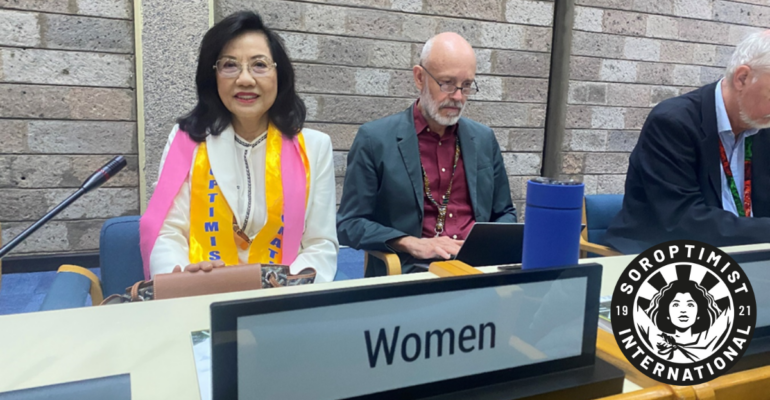Blog of SI President, Siew Yong Gnanalingam.
On the unique date of February 29th, the United Nations Environment Assembly (UNEA) complex became the epicenter of global environmental discourse as Heads of States convened for the cultural opening of the 3rd High-Level Segment of the Assembly. This gathering of world leaders marked a pivotal moment in addressing the pressing environmental challenges facing our planet.
Insights from Distinguished Leaders:
Secretary-General of the United Nations (via video message):
In a powerful video message, the Secretary-General of the United Nations António Guterres called for collective responsibility in addressing environmental challenges. He underscored the urgent need to transition away from fossil fuels towards renewable energy sources and advocated for multilateral solutions to global issues. His message resonated with the assembly, emphasising the importance of meeting commitments to secure a sustainable future.

Figure 2 SI President Siew Yong Joins H.E. President Leila Benali, President of UNEA 6, Minister of Environment & Sustainable Energy, Morocco during a reception Delegates Dinner.
In her address, Leila Benali, President of UNEA 6, underscored the imperative for a unified global treaty to combat plastic pollution. She emphasised the need for sustained engagement and innovation while stressing the importance of nurturing common bonds. Leila’s call to elevate action to tackle pollution and prioritise gender equality and youth empowerment resonated deeply with attendees.
President of the General Assembly:
The President of the General Assembly Dennis Francis echoed Leila’s sentiments, emphasising the critical importance of upholding the Paris Agreement. He brought attention to the ongoing negotiations for a legal binding agreement on plastic pollution, highlighting Nairobi’s pivotal role in this endeavour. His stark warning about the escalating volume of plastic pollution, surpassing that of fish, served as a stark reminder of the urgent need for action.
President of the Economic and Social Council:
Taking a holistic approach, the President of the Economic and Social Council Paula Narváez Ojedaa emphasised the interconnectedness of environmental and social issues. She stressed the mobilisation of resources to address food security, recognising it as a cornerstone of sustainable development.
Executive Director of UNEP:
The Executive Director of the United Nations Environment Programme (UNEP) Inger Andersen emphasised the agency of individuals in effecting change. She urged attendees to push back against the triple planetary crisis and emphasised the importance of inclusive multilateralism. Her call for resolute implementation struck a chord, galvanising attendees towards action.
Director-General of the World Health Organisation:
The Director-General of the World Health Organisation Dr Tedros Adhanmon delivered a poignant keynote address, highlighting the profound impact of environmental degradation on human health. He drew attention to the alarming increase in cardiovascular diseases due to rising temperatures and stressed the need for transformative action to safeguard global health. “…the doctor treats but nature heals”.

Figure 3 SI President Siew Yong paid a Courtesy Call to Mary Muthoni Muriuki, Principal Secretary of State Department of Public Health & Professional Standards in Nairobi, Alongside UNEA-6
President of the Republic of Kenya:
As the host nation, the President of Kenya H.E William Samoei Ruto passionately articulated his country’s stance on the critical environmental issues facing the world today.
He underscored the urgent need for effective, inclusive, and sustainable multilateral actions to address the challenges posed by climate change and environmental degradation.
Drawing from Kenya’s own experiences and initiatives, the President emphasised the tangible impacts of climate change on his nation and its people. From unpredictable weather patterns affecting agriculture to the loss of biodiversity and threats to wildlife conservation, Kenya serves as a poignant example of the urgent need for action.
The President highlighted the importance of partnerships and transformative initiatives in tackling environmental challenges. He called for collaborative efforts between governments, civil society, and the private sector to mobilise resources and drive meaningful change. Furthermore, he emphasised the role of global corporations in spearheading transformative actions towards sustainability.
Concluding Thoughts
In conclusion, Soroptimist International has a critical role to play in advancing the global environmental agenda and promoting sustainable development. By aligning our advocacy and initiatives with the insights from the 3rd High-Level Plenary of UNEA 6, we can contribute to building a more equitable, resilient, and sustainable world for present and future generations. Let us act collectively to address the pressing environmental challenges facing our planet.

